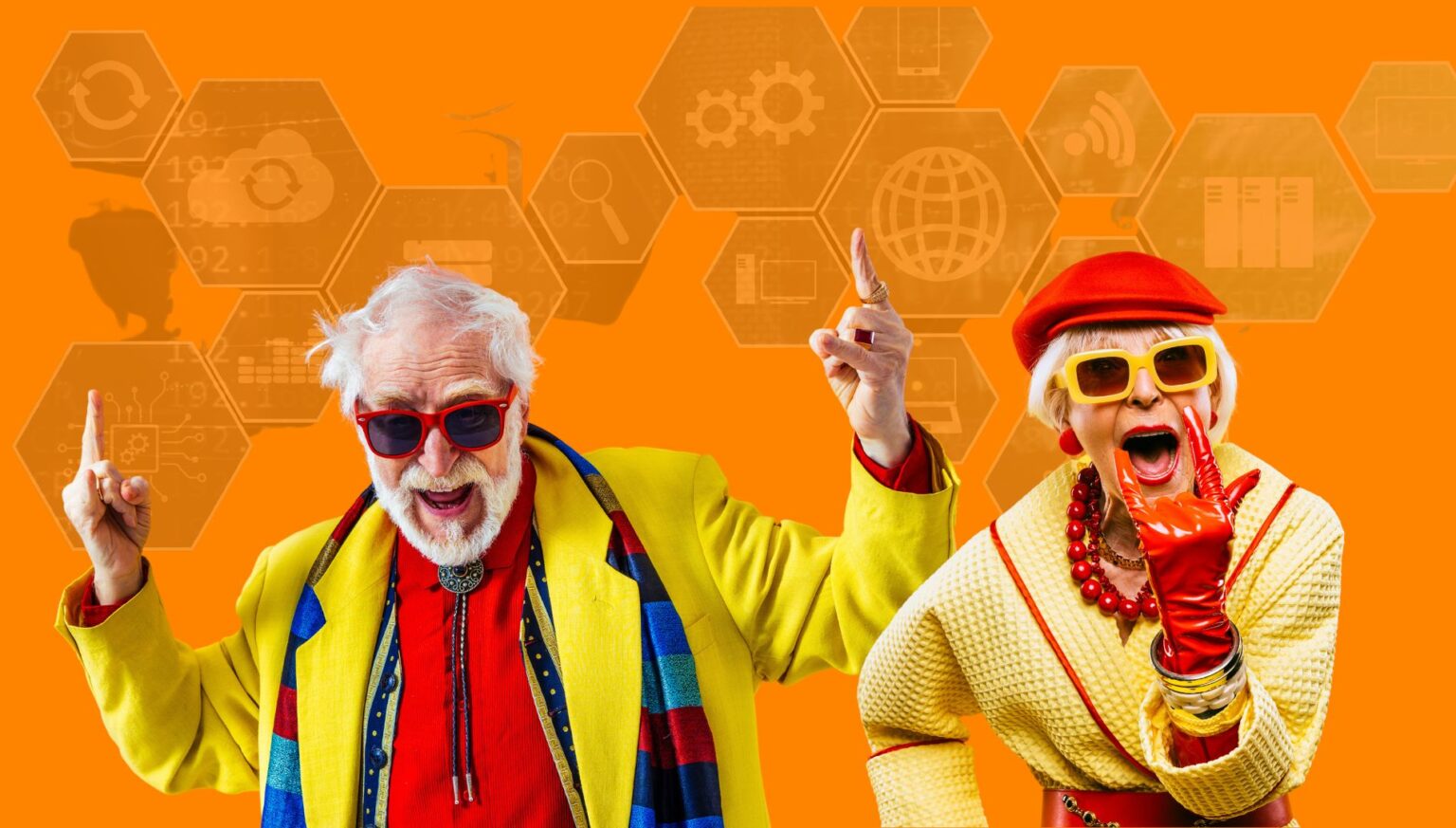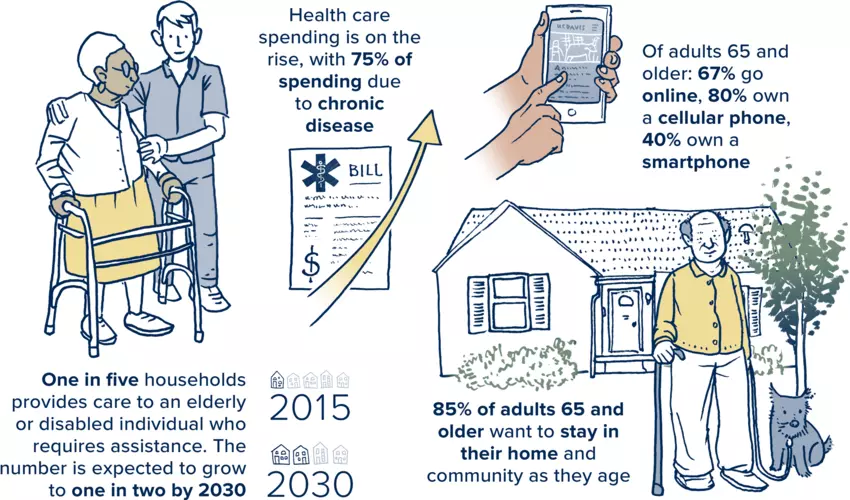@2021 invictIQ is a venture by Sprint Consultancy. All rights reserved. Privacy Policy.

Tech-Forward Aging : Transforming Senior Living and Well-being!
by Mark Topps
Technology is rapidly changing the social care landscape, and sometimes things move so quickly we miss what is available.
Age UK estimates there are 1.4m chronically lonely older people in England, and I thought I would take a moment to dive into some of the technology that is assisting our elders and supporting them to remain as independent as possible.
Assistive Technology
One of the most well known pieces of technology for our elders is assistive technology, and this is likely because it is commissioned by so many local authorities and elder networks such as Age UK. There are many devices such as telecare, memory aids, accessible mobile phones, personal alarms, GPs trackers, bath overflow sensors.
Falls Fall Detection Systems
Many companies offer fall detection devices that automatically alert emergency services or the next of kin should someone fall.
Smart Heating
Many of us use it in our personal lives, but I rarely see this utilised for our elders. Hive, Nest and similar products are a great piece of technology that allows our elders who are bed bound or have restricted mobility to control their heating at home.
Smart Lighting/Controls
Just like smart heating, this again is something many of us have, but is not in our elders’ homes. Smart lighting, plugs and controls allow people to easily control parts of their home and furniture/fittings.
Voice Assistance
Voice assistants have grown in popularity in the last few years, but also in their capabilities. It allows people to control their heating, lighting, plugs, write messages on phones, control devices such as Alexa to play music, tell them the news or weather, acts a reminder to take their medication.
Camera Doorbells
Again, this is something for those living on their own that is not commonly installed but actually many of our elders are the most vulnerable. Smart doorbells allow people to see who is at the door before they open it, act as CCTV should something be needed. Its not just doorbells we should consider but also camera sensors within the persons home that can also act as a deterrent or recording, should it be needed.
Elderly-Friendly Smartphones/Tablets
Specialised smartphones with larger text and simplified interfaces are available for people who may find standard smartphones challenging to use. Some of the great available smartphone/tablets are Grandpad, Komp, Amazon Echo Show and Meta Portal.
Apps
The demand for apps to support people has grown, with the likes of Amazon focusing a lot of their research into the elder market. Apps range from everyday ones such as zoom, games, Facebook etc but also range to older targeted ones such as ‘Pill Reminder Pro,’ ‘Komp’ and ‘Pocket Physio.’ These apps allow people to connect to the outside world, stimulate brain function, support with their health, access news and entertainment.
Remote Monitoring
There are a number of remote monitoring tools on the market these days which can monitor vital signs, record photos, perform multiple assessments and spot early signs of deterioration or illness. One of the standout providers for this is Whzam which is linked to people’s electronic health records, giving GPs and care providers complete oversight and streamlining peoples care.
Robotics
I am sure your mind went to a metal robot, and who can blame you, this is the stereotype of robots that the media pushes upon us. There are some amazing robotic gadgets out there to support our aging population, including, robotic companions (cats and dogs), intuition robotics that sparks conversations and prevent loneliness.
Some of the technology that slips through the net though is tech such as:
- Toil Labs who invented TrueLoo, a toilet swat that fits any toilet and has sensors that determine who is the user is and scans the toilet to determine the size, colour, consistency, frequency and shape of the faecal matter. The information can then be utilised to monitor the persons health.
- Milbotix who invented SmartSocks which are socks that track heart rate, sweat level and motion to give insights into the wearers wellbeing, cognitive state and distress levels.
- TENA-U, invited by Tena that have detectors in their pads that can detect higher levels of bacteria in urine, allowing urinary tract infections/UTI’s to be identified quicker.
Googling the names of the above three products I knew about, opened my eyes to just how many products there are available that I was unaware about! There is more in the landscape of clothing products, from smart belts, injury detecting socks, rehabilitation boots, smart tape and even smart underwear!
With major tech companies such as Amazon and Microsoft investing heavily in the elder care market, the whole way of how we support people to live and use technology will soon completely transform.
America already has Amazon delivering medication via drones and Microsoft have announced AI tools to help doctors deliver better care.
MORE ARTICLES

Mark Topps is a social care leader who has worked in the care industry since 2004 and is currently working as a regional support manager. He regularly advocates, appearing on television, radio and podcasts and has started many campaigns for change in legislation and culture within the industry. Mark is the co-founder of The Caring View which is a social care podcast, YouTube show and free resource initiative for the sector. He also co-founded The Health and Social Care Club, which is an audio event hosted on LinkedIn. Mark is also the social media and marketing director at the National Association of Care and Support Workers.
Share
Sign up for our newsletter

